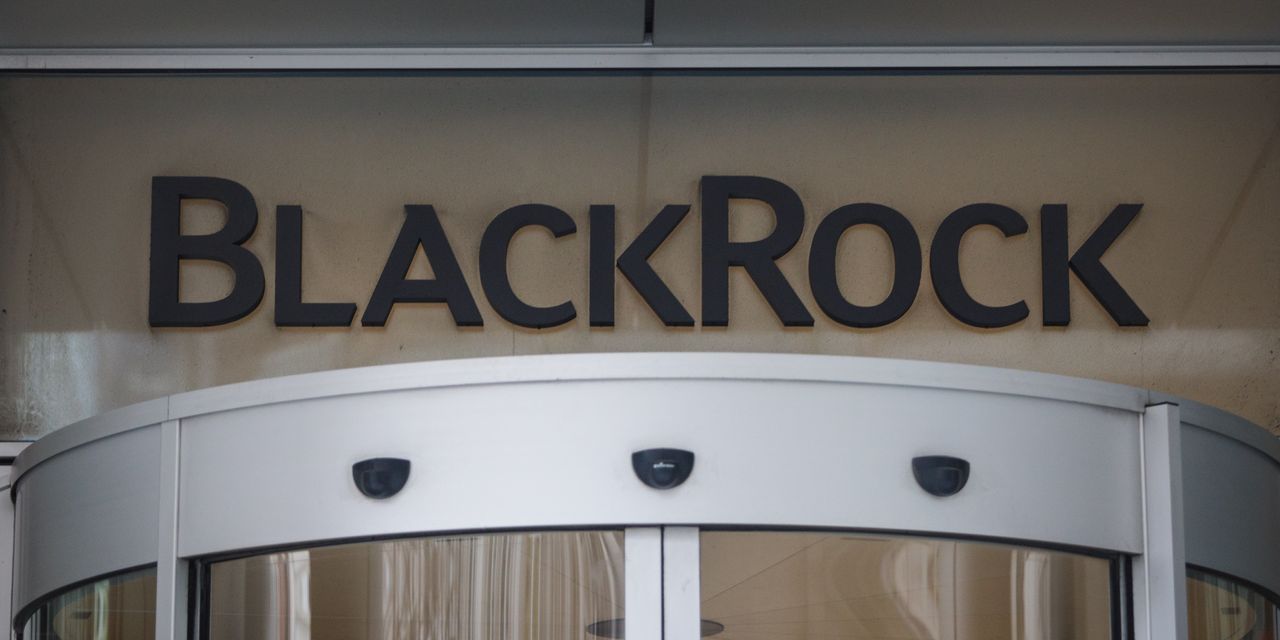Led by BlackRock, several major asset managers, such as Fidelity, Invesco, WisdomTree and VanEck, recently filed applications for exchange traded products that invest directly in bitcoin, and named Coinbase as their partner for an important surveillance sharing agreement in their filings.
The U.S. Securities and Exchange Commission has approved several bitcoin
BTCUSD,
futures-based ETFs in the past, but has yet to greenlight anything that is backed by bitcoin itself.
The asset managers’ filings also come in at a time as the SEC continues its regulatory onslaught against crypto companies, including lawsuits against Coinbase
COIN,
and the world’s largest crypto exchange Binance.
On June 6, the SEC charged Coinbase with operating an unregistered national securities exchange, brokerage and clearing agency. In a 177-page filing, Coinbase denied the SEC’s allegations and said the agency had expanded its definition of investment contracts “by decree, arbitrarily, and without congressional mandate.”
Why did the asset managers file for bitcoin ETFs at this time?
“While the exact catalyst for BlackRock’s first-time filing remains unknown, it may be due in part to Grayscale’s progress in its lawsuit with the SEC, [BlackRock’s] perceived ability to maneuver the current regulatory climate, and/or its ability to procure a new surveillance sharing agreement with Coinbase,” according to Matt Kunke, a research analyst at GSR.
BlackRock
BLK,
and Invesco
IVZ,
declined to comment. Representatives at Coinbase, Fidelity, WisdomTree
WT,
and VanEck didn’t respond to requests for comment.
In March, at an appeals court hearing, a panel of judges reportedly questioned the SEC’s rejection of Grayscale’s application to convert its Grayscale Bitcoin Trust into an ETF.
The judges appeared skeptical of the SEC’s responses on Grayscale’s argument that, as the agency previously approved certain surveillance agreements to prevent fraud in bitcoin futures-based ETFs, the same arrangements should be adequate for spot ETFs, as both spot and futures funds bank on bitcoin prices, according to Reuters.
BlackRock, in its initial spot bitcoin ETF filing, noted that it will use a surveillance agreement, which requires the sharing of information about market trading activity, clearing activity, and customer identity, for the fund.
The asset manager later re-filed its paperwork, naming Coinbase as its partner for the surveillance sharing arrangement, after The Wall Street Journal last week reported that the SEC deemed the bitcoin ETF filings by BlackRock and others inadequate. Other asset managers also made similar updates.
Nasdaq, where BlackRock’s proposed bitcoin ETF would be listed, reached an agreement with Coinbase to enter into a surveillance sharing agreement on June 8, according to an updated filing.
Read: Cathie Wood’s Ark made this change to its bitcoin ETF filing. Here’s why it matters
The asset managers’ decisions to file bitcoin ETFs at this time are also a vote of confidence in Coinbase and the crypto industry in the U.S., some analysts said.
“In my opinion, [the asset managers] are downplaying the risk of a successful lawsuit against Coinbase,” Mark Connors, head of research at digital asset manager 3iQ, said in a phone interview. “BlackRock’s filing means that they vote that the SEC will not prevail in their case against Coinbase.”
Jeff Feng, co-founder at Sei Labs, echoed the point. “This choice suggests that these institutions believe that Coinbase has a robust legal defense in its operations, further fueling the optimism around the potential for approval.”
“Given the current circumstances, there are indeed strong signals suggesting that approval of these spot bitcoin ETFs could be on the horizon,” noted Feng. “However, it’s vital to remember that in this rapidly evolving regulatory landscape, an elevated probability doesn’t necessarily translate into a guaranteed outcome,” Feng told MarketWatch in an email.
Analysts at Alliance Bernstein wrote in a recent note that they think the chances for the SEC to approve spot bitcoin ETFs are “fairly high.”
The SEC “would rather bring in a regulated Bitcoin ETF led by more mainstream ‘Wall Street’ participants and with surveillance from existing regulated exchanges, than having to deal with a Grayscale OTC product filling the institutional gap,” they wrote.
Also read: Spot bitcoin ETFs won’t be derailed as SEC reportedly details concerns, crypto insiders say
Read the full article here













